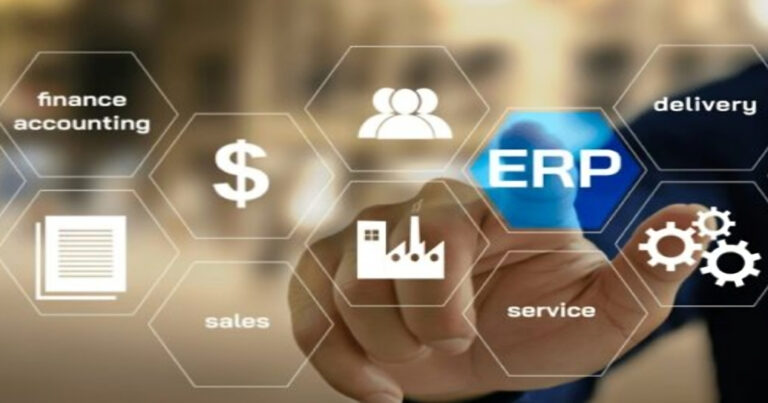NetSuite Data Security – Best Practices to Keep it Impregnable
In the digital age, data is the lifeblood of your business. It’s the fuel that powers your decisions, the foundation for your growth. But with this power comes great responsibility. NetSuite, the leading cloud-based ERP system, provides you with a powerful platform to manage your business operations, but securing your NetSuite data and ensuring compliance with industry regulations is paramount.
Imagine your NetSuite instance as a fortress. Its walls are strong, its gates secure. But even the most robust defenses can be breached if not properly maintained and guarded. This is where NetSuite security best practices come into play.
Valuable Content:
In this blog, we’ll delve into the essential strategies to keep your NetSuite data secure, compliant, and worry-free. So, grab your virtual armor, and let’s embark on this journey to fortify your NetSuite kingdom.
1. The Foundation of Security: Access Control
The first line of defense is always access control. Think of it as the gatekeepers of your NetSuite fortress.
- Role-Based Access Control (RBAC): The cornerstone of access control. Assign roles based on responsibilities, not just job titles. The principle of least privilege reigns supreme – give users only the access they need to perform their tasks.
- Two-Factor Authentication (2FA): An extra layer of security. It’s like adding a moat to your fortress. Even if someone manages to guess the password, they’ll need the second authentication factor (like a code sent to their phone) to get in.
- Regular Access Reviews: Access needs change over time. Conduct regular reviews to ensure users still need the access they have. It’s like checking the credentials of everyone entering your fortress.
2. The Watchtower: Monitoring & Auditing
Vigilance is key. You need to keep an eye on who’s doing what within your NetSuite fortress.
- Activity Logging: Enable detailed activity logging to track user actions. This provides a record of what’s been done, when, and by whom. It’s like having CCTV cameras in your fortress.
- Audit Trails: Set up audit trails for critical data and processes. This provides an even more granular view of changes made, including before and after values.
- Real-Time Monitoring: Implement real-time monitoring for suspicious activities. Set alerts for unusual login attempts, data exports, or changes to critical settings. It’s like having guards patrolling your fortress, ready to raise the alarm at the first sign of trouble.
3. The Arsenal: Data Encryption & Backups
Protecting your data at rest and in transit is crucial.
- Data Encryption: Encrypt sensitive data both at rest (stored in NetSuite) and in transit (moving between NetSuite and other systems). This ensures even if someone manages to get their hands on your data, they won’t be able to read it.
- Regular Backups: Back up your NetSuite data regularly. This provides a safety net in case of data corruption or loss. It’s like having a secret vault where you store copies of your most valuable treasures.
4. Compliance: The Rulebook
Staying compliant with industry regulations is not just good practice, it’s often a legal requirement.
- Industry-Specific Regulations: Understand the specific regulations that apply to your industry (e.g., GDPR, HIPAA, PCI DSS). These are like the laws of the land, and ignorance is no excuse.
- NetSuite Compliance Features: Leverage NetSuite’s built-in compliance features to help you meet these regulations. It’s like having a legal advisor within your fortress.
5. The Human Element: Training & Awareness
Your employees are your first line of defense, but they can also be the weakest link.
- Security Awareness Training: Educate your employees about security best practices and the importance of data protection. Make them aware of common threats like phishing attacks and social engineering.
- Regular Training Updates: Security threats evolve constantly. Keep your employees updated with regular training sessions and reminders.
Interactive Element:
- Quiz Time: Let’s check how well you’ve been paying attention! Answer these quick questions:
- What’s the cornerstone of access control in NetSuite?
- Why is regular backup important?
- What’s the “human element” in NetSuite security?
Personal Touch:
I remember a time when a client of mine experienced a data breach due to weak passwords and a lack of two-factor authentication. It was a wake-up call for them, and they quickly implemented stronger security measures. The experience taught them a valuable lesson: security is not something to be taken lightly.
Call to Action:
Securing your NetSuite data is not a one-time task, it’s an ongoing process. It requires constant vigilance, regular updates, and a commitment to best practices. But the peace of mind that comes with knowing your data is secure is priceless.
Remember, the fortress is only as strong as its weakest point. So, fortify your NetSuite kingdom, and sleep soundly knowing your data is safe and compliant.







